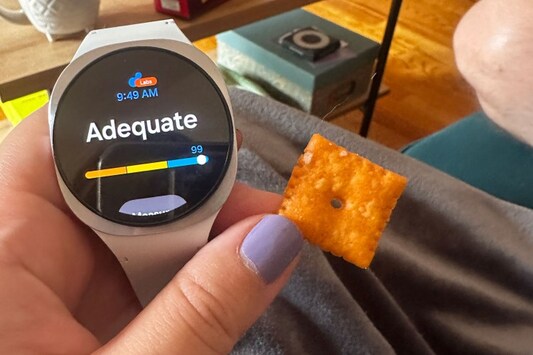
Galaxy Watch 8 Antioxidant Sensor Raises Eyebrows
Samsung’s new Galaxy Watch 8 includes an experimental antioxidant sensor that promises to estimate your fruit and vegetable intake using carotenoid levels in your skin. The Galaxy Watch 8 antioxidant sensor uses a combination of blue, yellow, and infrared LEDs to detect these pigments, which are commonly found in produce like carrots, tomatoes, and peaches. This technology, dubbed the "Antioxidant Index," suggests whether you're consuming the recommended 400g of fruits and veggies daily. But despite Samsung’s intentions, early testers are finding the results puzzling — and sometimes comically inaccurate.
How the Galaxy Watch 8 Antioxidant Sensor Works
To use the feature, users place their thumb on the sensor, wait 10 seconds, and receive a score reflecting their antioxidant level. According to Samsung, a higher score means you’re on track with your diet. However, tech reporter Victoria Song revealed how she received a poor score even after a fruit-and-veggie-packed weekend. Even more bizarre, when she colored her thumb with a yellow-orange marker, the sensor gave her a significantly better antioxidant rating — proving it can be easily tricked by surface colors, not actual nutrition. This raises serious questions about the reliability of this sensor and what it’s really measuring.
Why This Feature Might Mislead Health-Conscious Users
Smartwatches are evolving fast, but features like the Galaxy Watch 8 antioxidant sensor may give users a false sense of health awareness. Carotenoid readings from the skin can be influenced by external factors, lighting, and even cosmetics — which means a brightly colored snack or marker might skew the result. While it’s an exciting idea for users wanting a quick health snapshot, this tool shouldn’t replace real nutrition tracking. Relying too much on such data could result in incorrect assumptions about your diet and well-being.
Takeaway: Use the Galaxy Watch 8 Antioxidant Sensor with Caution
Samsung’s innovation is admirable, and the Galaxy Watch 8 antioxidant sensor adds a fun twist to health tracking. But until the tech matures, it’s best treated as a novelty, not a diagnostic tool. If you're aiming to eat healthier, keep focusing on real, whole foods rather than trying to please your smartwatch. And if you ever want to feel like a nutrition superstar, apparently, a Cheez-It — or a well-placed orange marker — can do the trick.
𝗦𝗲𝗺𝗮𝘀𝗼𝗰𝗶𝗮𝗹 𝗶𝘀 𝘄𝗵𝗲𝗿𝗲 𝗿𝗲𝗮𝗹 𝗽𝗲𝗼𝗽𝗹𝗲 𝗰𝗼𝗻𝗻𝗲𝗰𝘁, 𝗴𝗿𝗼𝘄, 𝗮𝗻𝗱 𝗯𝗲𝗹𝗼𝗻𝗴. We’re more than just a social platform — from jobs and blogs to events and daily chats, we bring people and ideas together in one simple, meaningful space.